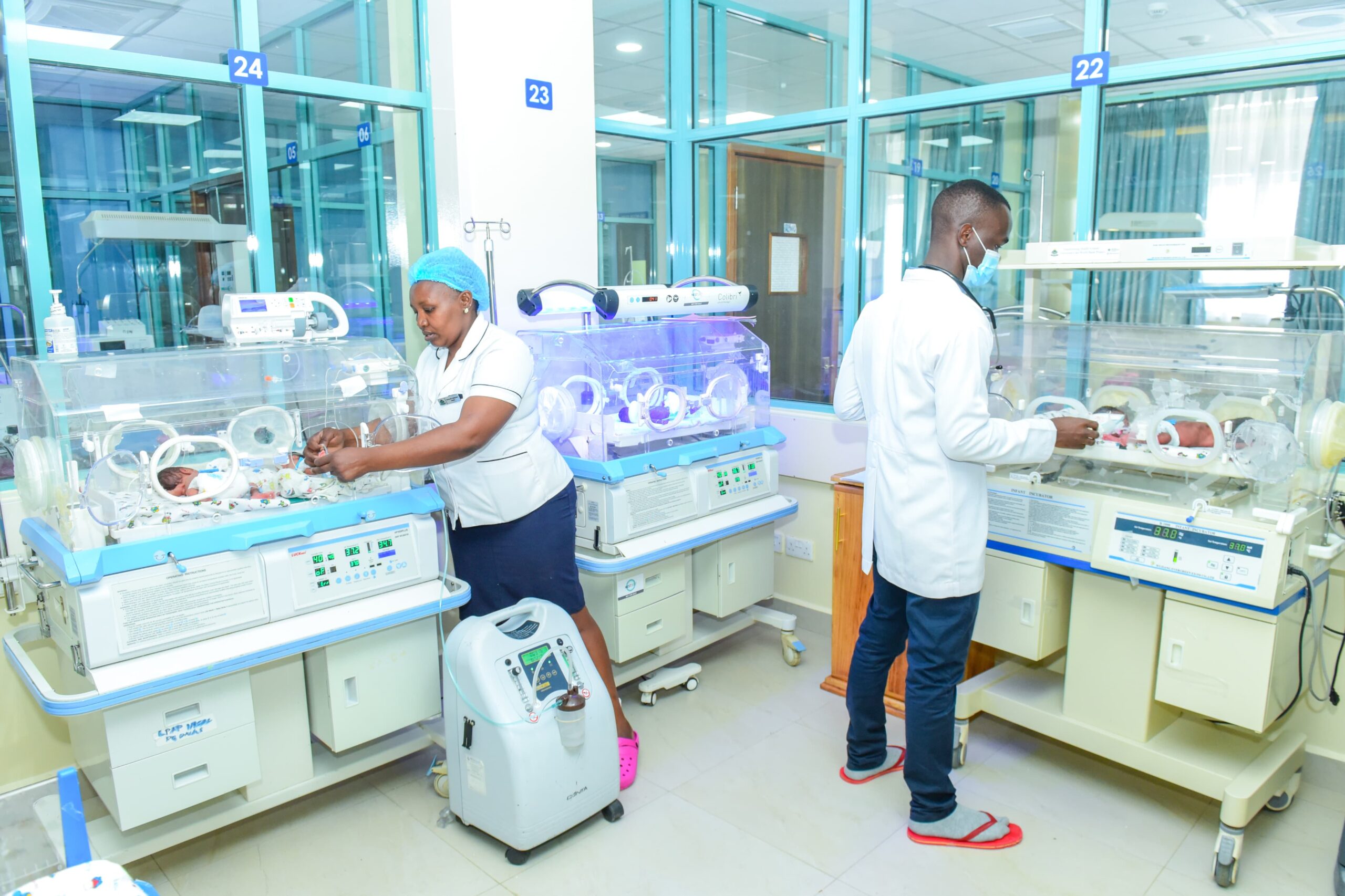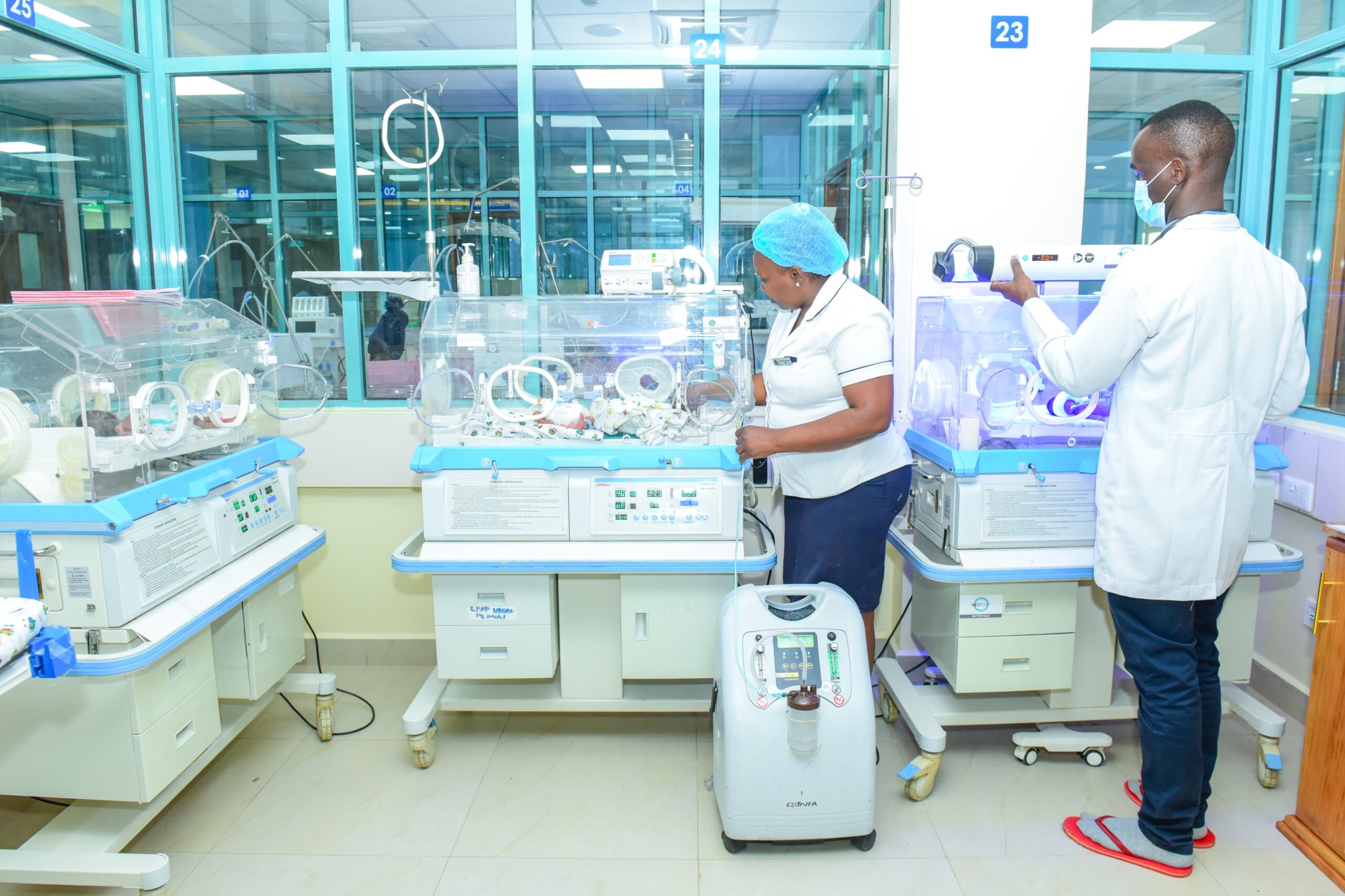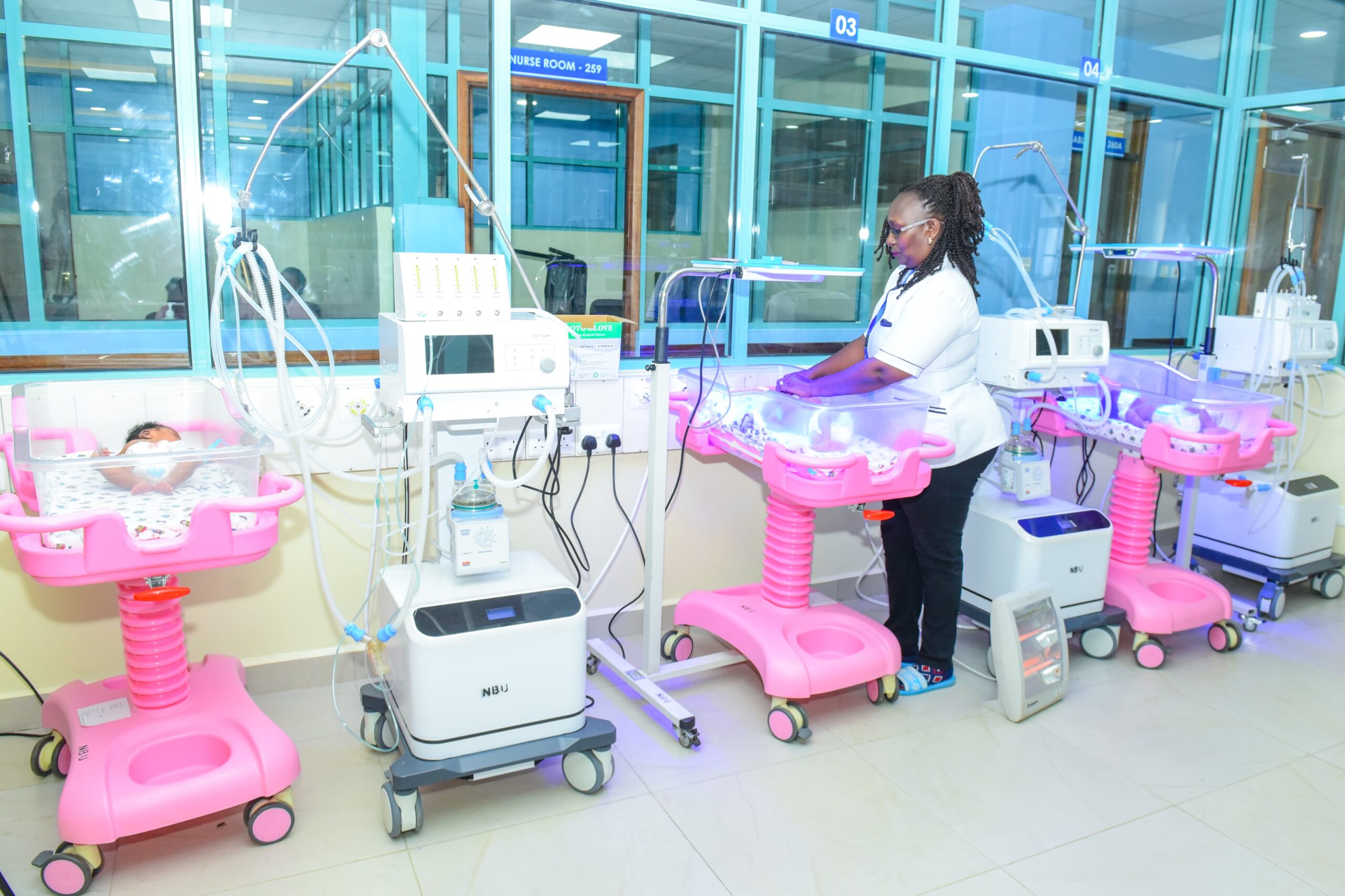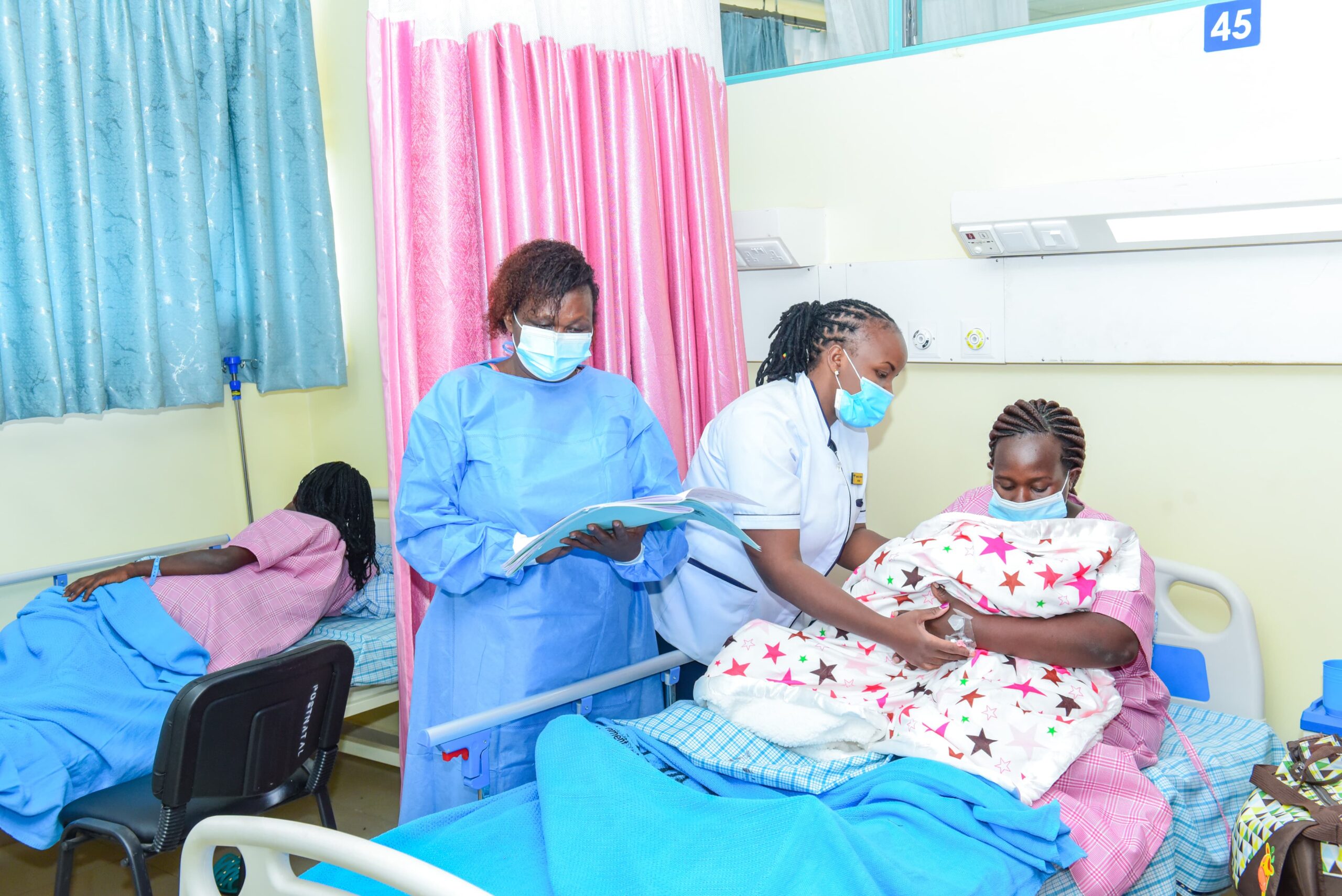Kirinyaga county government steps up efforts in reduction of maternal and child mortality
The county government of Kirinyaga has stepped up efforts to reduce maternal and child mortality in the county.
Statistics from Medical Services, Public Health and Sanitation shows that deaths of infants have gone down from 22% in 2013 to about 8%.
Among the measures that Governor Anne Waiguru’s administration has taken include expansion, improvement and equipping of health facilities, expansion and equipping of a New Born Unit (NBU), capacity building of health workers and strengthening of community health systems.
Due to the sustained interventions, maternal and neonatal mortality rates in the county have significantly reduced.
Medics have hailed Governor Waiguru for the notable improvement in medical services at Kerugoya County Referral Hospital NBU.
The County Executive Committee Member of health, George Karoki, said that the aim was to reduce all preventable neonatal deaths by ensuring that all expectant mothers receive antenatal care and deliver in hospital. Currently, 80% expectant mothers in the county attend at least four antenatal clinics towards the delivery time.
“The NBU at the hospital can only be compared to one in the high-end private hospitals and is the best in the region,” he said.
The NBU has modern equipment such as incubators, CPAP machines, Phototherapy machines, fluid pumps, oxygen splitters, light meters, radiant warmers, oxygen concentrators, sanction and resuscitating machines among others. With this equipment, pre-term babies and those born with other conditions are supported until they are fit survive on their own once discharged.
Since not many hospitals provide specialist neonatal services, Kerugoya NBU receives many referrals from public and private health facilities in and outside the county.
Among the babies admitted at the unit are those born premature, with low birth weight, those born at term but have conditions such as jaundice or infections. Babies recovering from complex surgery are also admitted at the unit. Pre-term babies are those born before attaining 1,800 grams where they are nurtured until they attain at least 2,500 grams after which they can be further managed by the outpatient pediatric clinic.
Further, statistics shows that cases of mothers dying while giving birth have reduced to the current average of 60 deaths per 100,000 mothers against the national rate of 414 deaths in every 100,000 cases.
Waiguru has stressed on the optimization of community health programs to strengthen care coordination by connecting expectant mothers with the available healthcare and social support systems.
“To achieve this, the county government has deployed 1,205 Community Health Promoters who are fully equipped with knowledge and medical kits to offer basic services to people in the villages. They maintain a register of expectant mothers within their allocated households with the aim of checking on them to ensure they are doing well and that they attend their antenatal clinics accordingly,” she said.
The Council of Governors (COG) chair has reiterated her commitment towards continuous improvement of mother and child healthcare across the county.
To further enhance the county’s referral system and ensure that all the expectant mothers in the county deliver safely in the health facilities, Waiguru said that her administration is in the process of rolling out a program to offer free transport to expectant mothers to hospital for delivery. Through M-MAMA Emergency Transport System, the County Government will contract and train transport service providers and provide the mothers with toll free number that they will call when their time to deliver comes.
Ann Nyawira, a nurse at the NBU said that the county government has supported the unit through trainings as well as equipping it with the necessary equipment.
“The unit has adequate room for Kangaroo Mother Care (KMC) where teach mothers how to keep their pre-term babies warm through body contact and how to breast them after they are weaned off the feeding tubes, before they are discharged from the hospital. The transitional care also allows mother and child to bond,” she said.
Before the county government established the NBU, babies in need of specialized neonatal care could be referred to Kenyatta National Hospital. Such referrals were not only expensive but could also cost the life of a baby since critical time could be lost in between the referral process.








